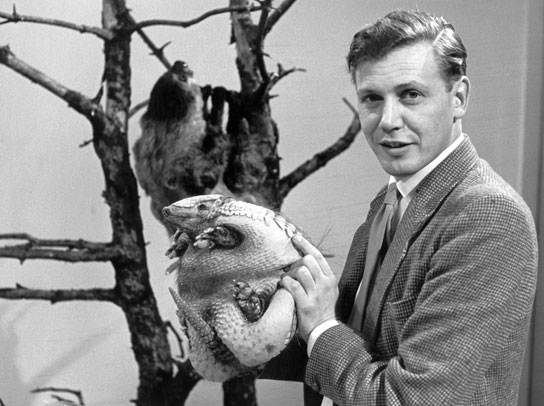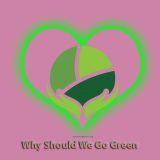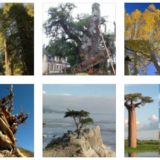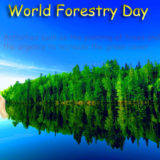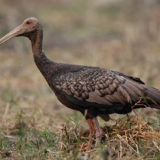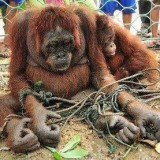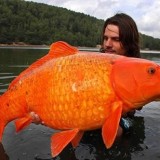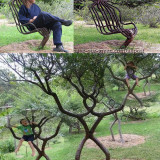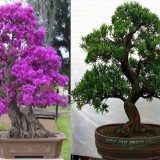David Attenborough
David Attenborough is one of the most widely respected TV broadcasters and has become known as the face and voice of natural history documentaries. His career as the face and voice of natural history programmes has endured for more than 50 years.
David was born on 8 May 1926. He is the younger brother of actor and director, Richard Attenborough. He never expressed a wish to act and, instead, studied Natural Sciences at Cambridge University, graduating in 1947, the year he began his two years National Service in the Royal Navy. In 1952, he joined BBC Television at Alexandra Palace and, in 1954, began his famous “Zoo Quest” series. From 1965 to 1969, Attenborough was the controller of BBC Two. He initiated a wide range of programmes including live Snooker, Match of the Day, the Likely Lads and Mastermind. David later said he felt BBC Two should maintain a good range of diversity.
David Attenborough is remembered primarily for his natural history series that he wrote and produced. His major series included: • Life on Earth (1979), • The Living Planet (1984) • The Trials of Life (1990). • Life in the Freezer (about Antarctica; 1993), • The Private Life of Plants (1995), • The Life of Birds (1998), • Life in the Undergrowth (2005) He also narrated over 250 programmes of Wildlife on One.
The key to David’s appeal is his ability to share his genuine enthusiasm and love for wildlife. His distinctive and calming voice have become synonymous with wildlife broadcasting. Interestingly a reader’s survey of Readers’ Digest found that David Attenborough was the most trusted of British celebrities.
In recent years David has become increasingly outspoken on issues such as environmental damage, global warming and extinction of particular species. He has stated that human overpopulation and global warming (caused by human activity) are the root cause of much of the world’s growing environmental problems. He has lent his voice to organisations such as WWF in their fight to protect certain species and campaign for wildlife.
In the last episode of “State of the Planet” he summed up his feelings with the following statement: “The future of life on earth depends on our ability to take action. Many individuals are doing what they can, but real success can only come if there’s a change in our societies and our economics and in our politics. I’ve been lucky in my lifetime to see some of the greatest spectacles that the natural world has to offer. Surely we have a responsibility to leave for future generations a planet that is healthy, inhabitable by all species.”(image source)
